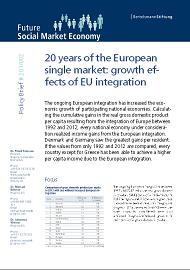Bacchetta, P. & Benhima, K. (2014) “The role of corporate saving in global rebalancing“, VoxEU Organisation, 24 Αυγούστου. Among the various explanations behind global imbalances, the role of corporate saving has received relatively little attention. This column argues that corporate saving is quantitatively relevant, and proposes a theory that is consistent with the stylised facts and useful for understanding the current phase of global rebalancing. The theory implies that, …Read More
Secular stagnation: Facts, causes, and cures
Teulings, C. & Baldwin, R. (2014) “Secular stagnation: Facts, causes, and cures“, VoxEU Organisation Books, 15 Αυγούστου. Six years after the Crisis and the recovery is still anaemic despite years of zero interest rates. Is ‘secular stagnation’ to blame? This column introduces an eBook that gathers the views of leading economists including Summers, Krugman, Gordon, Blanchard, Koo, Eichengreen, Caballero, Glaeser, and a dozen others. It is too early to …Read More
Evaluating the cost of government credit support: the OECD context
Lucas, D. (2014) “Evaluating the cost of government credit support: the OECD context“. Economic Policy, Vol. 29, Issue 79, pp. 553-597. Governments throughout the OECD allocate a large share of societies’ capital and risk through their credit-related activities. Hence, accurate cost estimates for credit support programmes are a prerequisite for efficient resource allocation, transparency, effective management and public oversight. I find that OECD governments generally take their cost of capital …Read More
The role of creditor seniority in Europe’s sovereign debt crisis
Steinkamp, S. & Westermann, F. (2014) “The role of creditor seniority in Europe’s sovereign debt crisis“. Economic Policy, Vol. 29, Issue 79, pp. 495–552. The share of public debt that is held by lenders with preferred creditor status (i.e. the IMF, ECB, ESM, etc.) has increased substantially during Europe’s sovereign debt crisis. Empirically, we document in both macro and survey data that there exists a close relationship between the increase …Read More
Addressing weak inflation: The European Central Bank’s shopping list
Claeys, G., Darvas, Z., Merler, S. & Guntram, B. (2014) “Addressing weak inflation: The European Central Bank’s shopping list“, Bruegel Institute, Policy Contributions, 06 Μαΐου. There are clear benefits to price stability. High inflation can distort corporate investment decisions and the consumption behaviour of households. Changes to inflation redistribute real wealth and income between different segments of society, such as savers and borrowers, or young and old. Price stability …Read More
Can large primary surpluses solve Europe’s debt problem?
Eichengreen, B. & Panizza, U. (2014) “Can large primary surpluses solve Europe’s debt problem?“, VoxEU Organisation, 30 Ιουλίου. For the debts of European countries to be sustainable, their governments will have to run large primary budget surpluses. But there are both political and economic reasons to question whether this is possible. The evidence presented in this column is not optimistic about Europe’s crisis countries. Whereas large primary surpluses for …Read More
Why is financial stability essential for key currencies in the international monetary system?
Goldberg, L., Krogstrup, S. & Rey, H. (2014) “Why is financial stability essential for key currencies in the international monetary system?“, VoxEU Organisation, 26 Ιουλίου. The dollar’s dominant role in international trade and finance has proved remarkably resilient. This column argues that financial stability – and the policy and institutional frameworks that underpin it – are important new determinants of currencies’ international roles. While old drivers still matter, progress …Read More
20 years of the European single market: growth effects of EU integration
Petersen, Τ. (2014) “20 years of the European single market: growth effects of EU integration“, Policy Brief 2014/02, Future Social Market Economy, Bertelsmann Stiftung, 29 Ιουλίου. The ongoing European integration has increased the economic growth of participating national economies. Calculating the cumulative gains in the real gross domestic product per capita resulting from the integration of Europe between 1992 and 2012, every national economy under consideration realized income gains …Read More
Asset-backed securities: The key to unlocking Europe’s credit markets?
Altomonte, C. & Bussoli, P. (2014) “Asset-backed securities: The key to unlocking Europe’s credit markets?“, Bruegel Institute, 24 Ιουλίου. The European market for asset-backed securities (ABS) has all but closed for business since the start of the economic and financial crisis. ABS (see Box 1) were in fact the first financial assets hit at the onset of the crisis in 2008. The subprime mortgage meltdown caused a deterioration in …Read More
When arm’s length is too far
Beck, Τ., Degryse, H., De Haas, R. & Van Horen, N. (2014) “When arm’s length is too far“, VoxEU Organisation, 25 Ιουλίου. The small and medium-size enterprises (SMEs) were among the most severely affected in the Global Crisis. This column discusses new evidence on how different lending techniques affect lending in bad and good times. Data from 21 countries in central and eastern Europe show that ‘relationship lending’ alleviates …Read More







